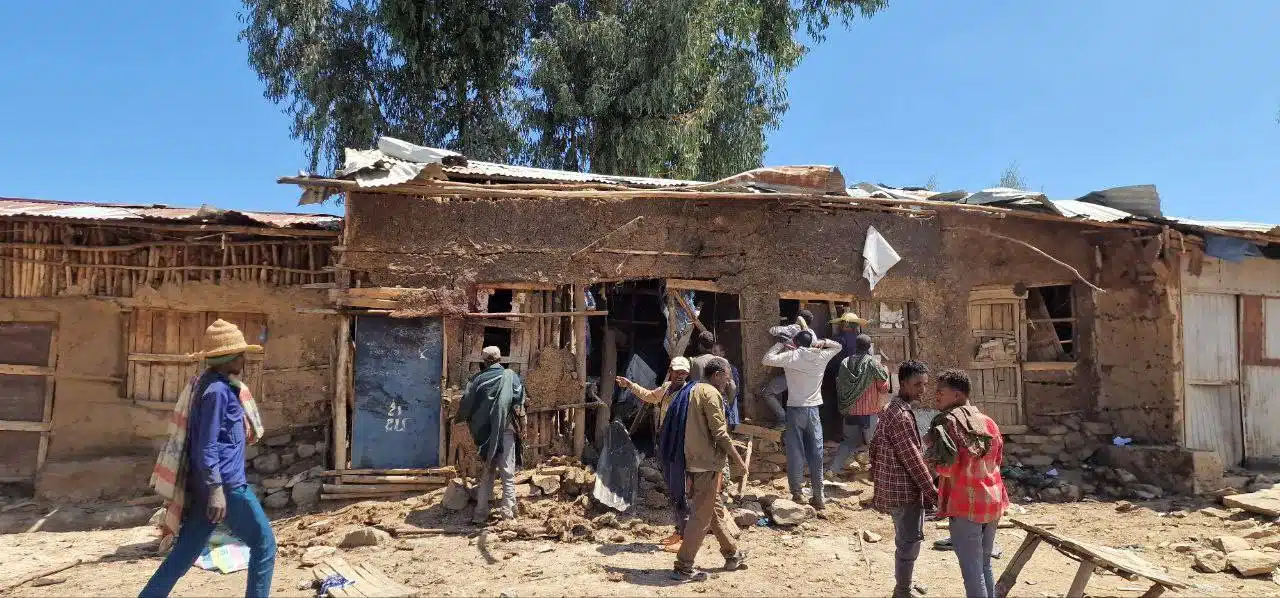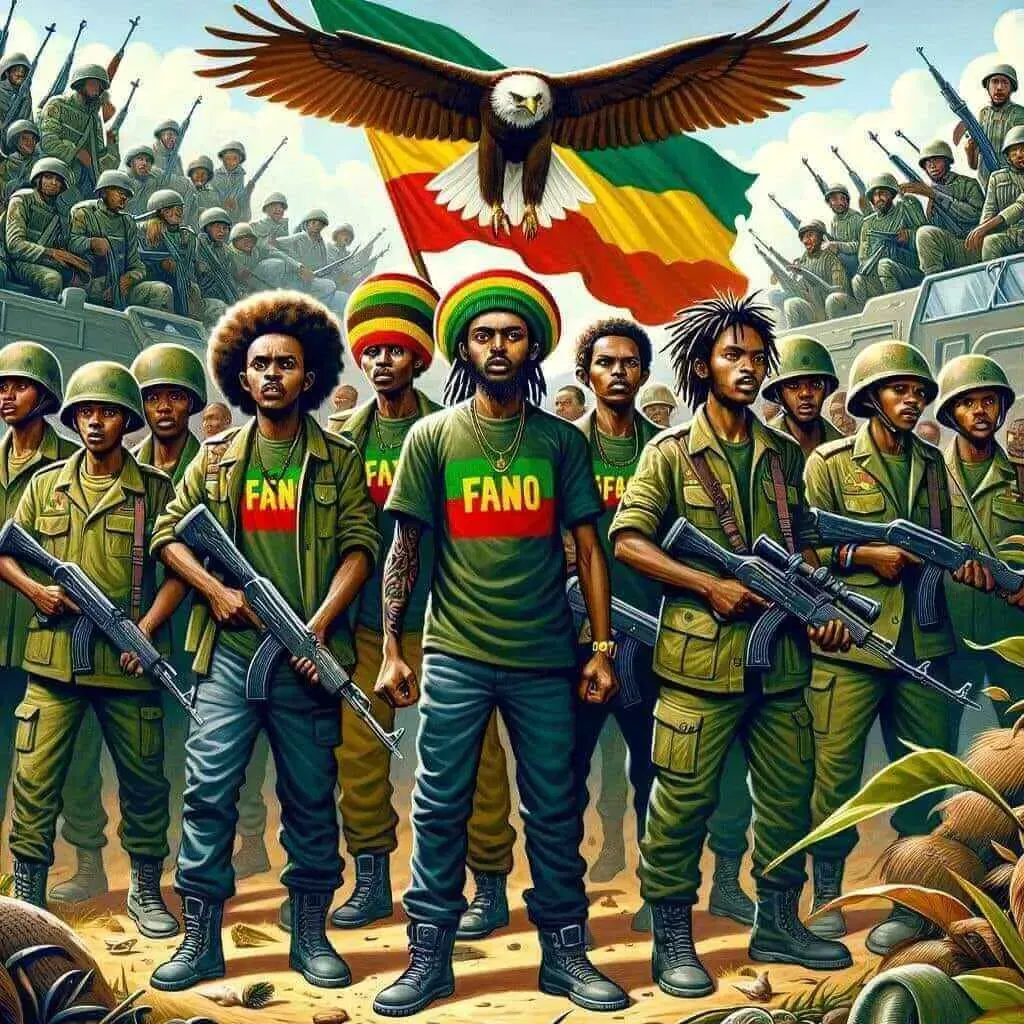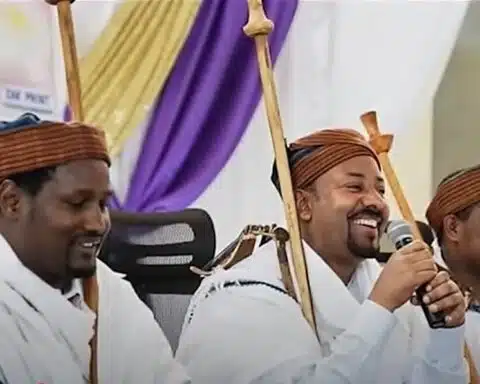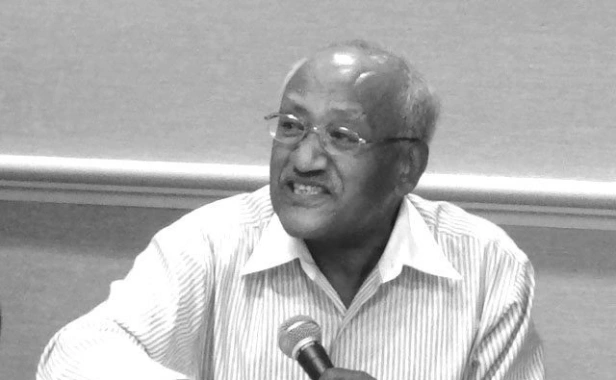 The Amhara region, a community in distress, has recently been under the spotlight for grave reasons. The helm of the dire situation is steered by Abiy Ahmed, the Prime Minister of Ethiopia, who has been recurrently linked with deplorable drone assault incidents, causing civilian casualties, including innocent children. Notwithstanding the enormity of his actions, the silence from the international community is deafening. This article delves into the crisis, the negative impacts of drone strikes within the Amhara region, and the upsetting indifference on a global scale, fostering this environment of violence. As we examine the safety concerns of the Amhara population, this issue calls for immediate attention and decisive action.
The Amhara region, a community in distress, has recently been under the spotlight for grave reasons. The helm of the dire situation is steered by Abiy Ahmed, the Prime Minister of Ethiopia, who has been recurrently linked with deplorable drone assault incidents, causing civilian casualties, including innocent children. Notwithstanding the enormity of his actions, the silence from the international community is deafening. This article delves into the crisis, the negative impacts of drone strikes within the Amhara region, and the upsetting indifference on a global scale, fostering this environment of violence. As we examine the safety concerns of the Amhara population, this issue calls for immediate attention and decisive action.
Political Ascent and Policies
Abiy Ahmed rose to power as the Prime Minister of Ethiopia in 2018 following a wave of public protests and government reforms. His initial tenure was marked with significant policy changes, particularly in the areas of political liberalization and regional diplomacy. Ahmed introduced numerous reforms aimed at opening up the highly controlled political landscape.
These reforms saw the lifting of bans on political parties, release of thousands of political prisoners, and major changes to laws constricting freedom of the press and civil society. Furthermore, his commitments to regional diplomacy, including efforts to pacify relations with Eritrea, won him international accolades, including the 2019 Nobel Peace Prize. Many saw in Ahmed’s leadership, fresh breath for Ethiopia’s democratization.
Shift in Governance Approach
However, Ahmed’s approach in governance eventually shifted. The previously welcomed reforms began meeting resistance as various ethnic groups started calling for more autonomy, leading to sporadic ethnic clashes. The shift in his approach, however, became more apparent in the Amhara region. The region, which had initially benefited from Ahmed’s liberal policies, bore the brunt of the government’s increasing use of military force, purportedly to quell rising political and ethnic tensions.
Tensions in Ethiopia: An Overview
Ethnic Conflicts and Historical Context
Ethiopia’s ethnic conflicts have a long and complex history, with the divisions predating Abiy Ahmed’s rise to power. Essentially, Ethiopia is made up of dozens of ethnic groups, each with distinct languages and cultures. Disagreements over resources, political representation, and territorial boundaries have often ignited ethnic tensions.
The Role of the Amhara Region
The Amhara region, one of Ethiopia’s largest ethnic groups, has been at the center of many of these tensions. Historically marginalized and seen as political dissidents, the Amhara people have often been subjected to government repression. Under Ahmed’s leadership, accusations have risen regarding a shift from political repression to physical attacks, most notably through the alleged use of drone strikes targeting Amhara civilians. The attacks in Amhara place Abiy Ahmed’s leadership under intense scrutiny as he appears to be perpetuating the very cycle of violence and ethnic divisions that he initially promised to quell.
The Use of Drone Strikes in the Amhara Region
The deployment of drone strikes under the command of Abiy Ahmed in the Amhara region has had a devastating impact on the civilian population. Unverified reports indicate numerous civilian casualties, including children. Drone strikes, being an imprecise method of attack in populated areas, have resulted in significant infrastructure damage. Schools, hospitals, and homes have been reportedly hit, leading to further harm to the innocent population, adding to the humanitarian catastrophe.
Psychological and Social Ramifications
Moreover, the psychological and social ramifications of these continuous drone strikes are extensive. The ongoing dread of impending attacks fosters a chronic state of stress and anxiety amongst the civilian population. This chronic distress can lead to long-term mental health issues, including post-traumatic stress disorder (PTSD). Social structures are also under strain as communities are uprooted and families torn apart by the ensuing chaos and the need to seek safety.
Targeting of Amhara Civilians
Frequency and Pattern of Strikes
More alarming is the alleged targeting of Amhara civilians in these attacks. With the increasing frequency of these drone strikes, a pattern of deliberate targeting of non-combatant communities within the Amhara region is emerging. This aspect of the attacks offers evidence to substantiate allegations of ethnic discrimination and war crimes.
Allegations of Human Rights Violations
The allegations of human rights violations linked to Abiy Ahmed are grave. In addition to the high civilian casualty rate, reports are surfacing of deliberate strikes on markets and other civilian-concentrated areas. These alleged violations of international law not only raise ethical and moral questions but could also lead to international legal implications. The indifference of the international community to these alleged atrocities only allows for such violence to persistentially unchecked.
International Community’s Response
The International Community’s Response to the escalating violence and humanitarian crisis in the Amhara region of Ethiopia, specifically the actions of Abiy Ahmed, has been somewhat reserved and detached. The ongoing drone strikes have seen rising civilian deaths, including children, raising serious questions about the safety and well-being of the Amhara population. Unfortunately, this reality has, to a large extent, persistently persisted due to a lack of comprehensive international intervention.
Global Reactions and Statements
United Nations and Major Powers
Contrary to expectations, the United Nations and major global powers have offered limited pushback to Abiy Ahmed’s actions in the Amhara region. Many expected strong condemnation and decisive actions to bring an end to the violence, but it seems the international community’s approach remains primarily hinged on statements of concern and calls for peace talks. The most severe step taken thus far has been the imposition of financial sanctions by the United States and European Union, targeting those believed to be exacerbating the conflict.
Role of African Union
The African Union (AU), an organization aimed at promoting unity and peace across Africa’s diverse nations, has also been tepid in its response. The AU has not, thus far, taken any punitive action or issued sanctions against Abiy Ahmed and the Ethiopian government, despite mounting evidence suggesting a targeted assault on the Amhara population. This response, or lack thereof, has become a source of major criticism against the AU, with many arguing that they’re failing in their purpose to protect African populations.
Challenges in International Intervention
Diplomatic and Political Barriers
Numerous diplomatic and political barriers are at play that complicates the International Community’s response to the crisis in the Amhara region. These complexities include Ethiopia’s political alliances, sovereign rights, and its position as an influential player in the Horn of Africa and across the continent. Consequently, major powers may be reluctant to impose severe sanctions or military intervention, as such moves may disrupt delicate regional balances and incite unintended conflicts.
Implications for Ethiopian Sovereignty
Under international law, Ethiopia possesses sovereign rights—we must recognize that Ethiopia has full authority over its internal matters. Any direct intervention by outside powers—particularly without UN authorization—could be interpreted as an intrusion on Ethiopia’s sovereignty. As sovereign integrity is a cornerstone of global diplomacy, severing it unilaterally is a serious concern, providing further hindrance to more drastic intervention measures in response to Abiy Ahmed’s actions. Therefore, diplomatic negotiations, sanctions, and the enforcement of international human rights laws are currently the most common pathways pursued by the international community in dealing with this crisis.
Implications for the Amhara Population
The current military offensive and drone strikes led by Abiy Ahmed in the Amhara region have triggered a major humanitarian crisis, particularly in the form of widespread displacement and a burgeoning refugee problem. Thousands of Amhara residents, including women and children, have fled their homes due to the aggression. The attacks have caused their homes and livelihoods to vanish in an instant, forcing them to seek refuge in neighboring regions and across international borders, where they live in pitiable conditions.
Access to Essential Services
A noteworthy fallout of Abiy Ahmed’s actions in the Amhara region is the severe disruption of essential services. The constant drone attacks obscure humanitarian aids’ ability to reach affected civilians. Food, clean drinking water, and medical care are now luxuries for those who remained or could not flee. The calamity has intensified as healthcare facilities and schools have also been destroyed in these strikes, incapacitating the population’s long-term well-being and development.
Future Prospects and Reconciliation
Pathways to Peace and Stability
In front of this horrifying situation, it is critical to explore possible pathways to peace and stability for the Amhara population. Achieving this requires a cessation of violence and the establishing of a ceasefire. Moreover, it should involve inclusive dialogue, where all groups, including Abiy Ahmed’s government and representatives from the Amhara region, participate to address grievances and work towards a peaceful coexistence.
Role of International Mediation
In these troubling times, international mediation has become pivotal. The world’s silent response to the allegations against Abiy Ahmed and his government’s alleged aggression against Amhara civilians has proven inadequate. The international community, including major powers, the United Nations, and the African Union, must act assertively and fairly to facilitate negotiations between the parties involved. Mediators should firmly address the violations of human rights, and perpetrators of violence should be held accountable to ensure a sustainable peace process.
TH
ዘመነን መንካት አይቻልም ✅🟡🔴 pic.twitter.com/mg7hkn6lgs
— Elizabeth Altaye (@AltayeEthiopia) February 24, 2025




